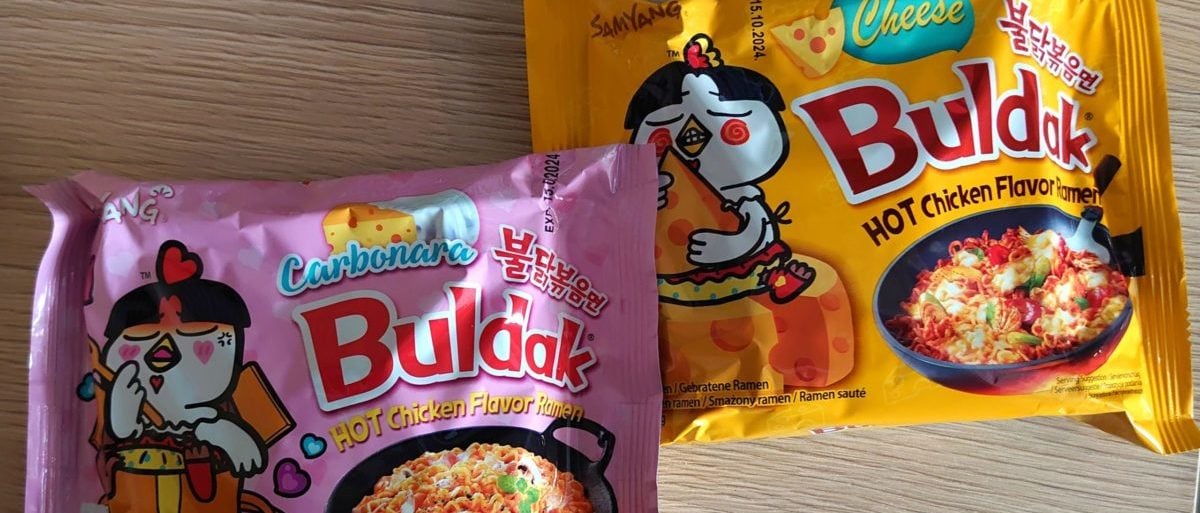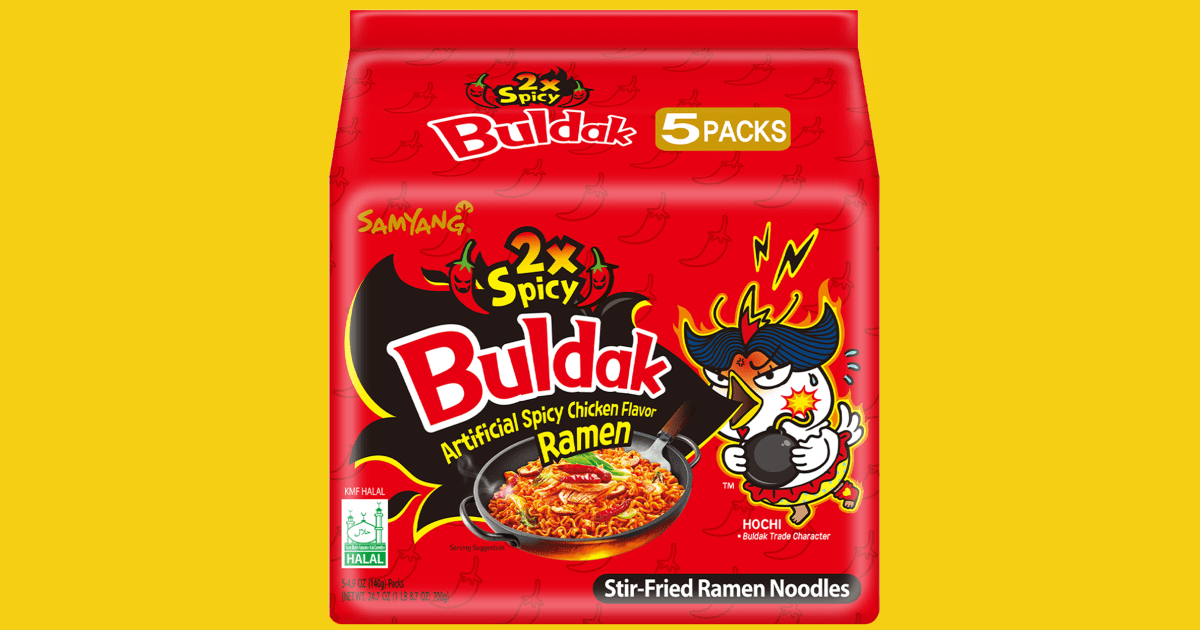As we step into 2024, food safety remains a critical concern for consumers worldwide. Among the many questions being asked is, "Is ramen being recalled in 2024?" Ramen, a globally beloved convenience food, has experienced recalls in the past due to various safety issues. This article delves into the current status of ramen recalls, the underlying causes, and the steps consumers can take to ensure their food remains safe and healthy.
Given the immense popularity of ramen, particularly the instant varieties, staying informed about potential recalls is more important than ever. Food recalls can occur due to contamination, undeclared allergens, or manufacturing defects, all of which can pose significant health risks. By understanding the reasons behind these recalls and learning how to identify them, consumers can make smarter and safer choices. In the sections below, we will explore the topic of ramen recalls in greater detail and provide practical advice for maintaining food safety.
The purpose of this article is to address your concerns about ramen recalls in 2024 and offer valuable insights into staying updated on food safety issues. We will also emphasize the importance of reading labels, following proper food safety practices, and knowing what to do if you encounter a recalled product in your pantry.
Read also:Anjali Aroras Viral Video A Closer Look At Privacy Impact And Digital Responsibility
Table of Contents
- What Exactly is Ramen?
- The Journey of Ramen Through Time
- What Constitutes a Food Recall?
- Ramen Recalls in Recent Years
- How to Stay Updated on Recalls
- Practical Tips for Consumer Safety
- Steps to Take if You Have Recalled Ramen
- Final Thoughts
What Exactly is Ramen?
Ramen is a quintessential Japanese noodle dish that has captured the hearts of food enthusiasts globally. Traditionally, it consists of wheat noodles immersed in a rich and flavorful broth, often complemented by an array of toppings such as succulent slices of meat, fresh vegetables, and perfectly cooked eggs. Over the decades, instant ramen has become a pantry staple for many due to its unparalleled convenience and affordability. Its versatility has made it a go-to meal for students, busy professionals, and families alike.
The Journey of Ramen Through Time
Ramen's origins can be traced back to China, where wheat noodles were first introduced to Japan. By the early 20th century, ramen had firmly established itself in Japanese cuisine, evolving into the beloved dish we know today. Each region in Japan boasts its own unique take on ramen, offering a diverse array of flavors and styles that cater to every palate. This rich history has contributed to ramen's widespread appeal across the globe.
Types of Ramen
- Shoyu Ramen: A soy sauce-based broth with a savory and umami-rich flavor profile.
- Miso Ramen: A creamy and robust broth infused with miso paste, offering a comforting taste.
- Shio Ramen: A lighter, salt-based broth that highlights the natural flavors of its ingredients.
- Tonkotsu Ramen: A rich and creamy broth made from simmered pork bones, known for its indulgent taste.
What Constitutes a Food Recall?
A food recall is a formal process in which companies remove products from the market due to safety concerns. These recalls can be initiated either voluntarily by manufacturers or mandated by regulatory bodies such as the Food and Drug Administration (FDA) or the United States Department of Agriculture (USDA). The reasons for food recalls are varied but often include:
- Pathogen Contamination: The presence of harmful bacteria such as Salmonella or E. coli, which can lead to foodborne illnesses.
- Undeclared Allergens: Ingredients that may not be listed on the label, posing risks to individuals with allergies.
- Foreign Materials: The accidental inclusion of non-food items in the packaging.
- Labeling Errors: Misleading or incomplete information on product packaging.
Ramen Recalls in Recent Years
In recent years, several notable recalls have affected popular ramen brands. For example, in 2023, certain instant ramen products were recalled due to the presence of undeclared allergens or contamination with harmful pathogens. These incidents highlight the importance of staying informed about food safety news, especially for consumers who frequently purchase and consume these products.
Key Recent Recalls
- Brand A Ramen: Recalled due to the presence of undeclared peanuts, posing a risk to those with peanut allergies.
- Brand B Ramen: Contaminated with Salmonella, leading to potential health hazards for consumers.
How to Stay Updated on Recalls
In today's digital age, staying informed about food recalls is easier than ever. Here are some effective strategies to ensure you are always up-to-date:
- Visit Official Websites: Regularly check the FDA website for the latest recall information.
- Subscribe to Newsletters: Sign up for food safety newsletters to receive timely updates directly to your inbox.
- Follow Reputable News Sources: Keep an eye on trusted news outlets that cover food safety topics to stay informed.
Practical Tips for Consumer Safety
Ensuring your food is safe begins with adopting smart shopping and storage habits. Here are some essential tips to keep in mind:
Read also:Understanding The Impact Of Maternal Warmth On Child Development
- Read Labels Carefully: Always inspect the ingredients and nutritional information before purchasing any food product.
- Regularly Inspect Your Pantry: Periodically check your pantry for any recalled products and remove them immediately.
- Stay Informed: Continuously educate yourself about food safety practices and the latest recall news.
Steps to Take if You Have Recalled Ramen
If you discover that you have a recalled ramen product in your possession, it is crucial to act swiftly. Follow these steps to ensure your safety:
- Stop Consumption Immediately: Cease eating the product to avoid potential health risks.
- Review Recall Notices: Carefully read the recall notice for specific instructions provided by the manufacturer.
- Return or Dispose Properly: Return the product to the store for a refund or dispose of it safely according to the recall guidelines.
Final Thoughts
As we move forward into 2024, it is imperative for consumers to remain vigilant about food safety, especially concerning widely consumed items like ramen. By understanding the reasons behind food recalls and learning how to identify them, you can safeguard your health and the well-being of your loved ones. Remember to stay informed through reliable sources, read labels thoroughly, and take prompt action if you encounter a recalled product. If you have any questions or experiences related to ramen recalls, we invite you to share your thoughts in the comments section or spread awareness by sharing this article with others.
Thank you for reading! We hope you continue to visit us for more informative articles on food safety and other topics that contribute to your overall health and wellness.


